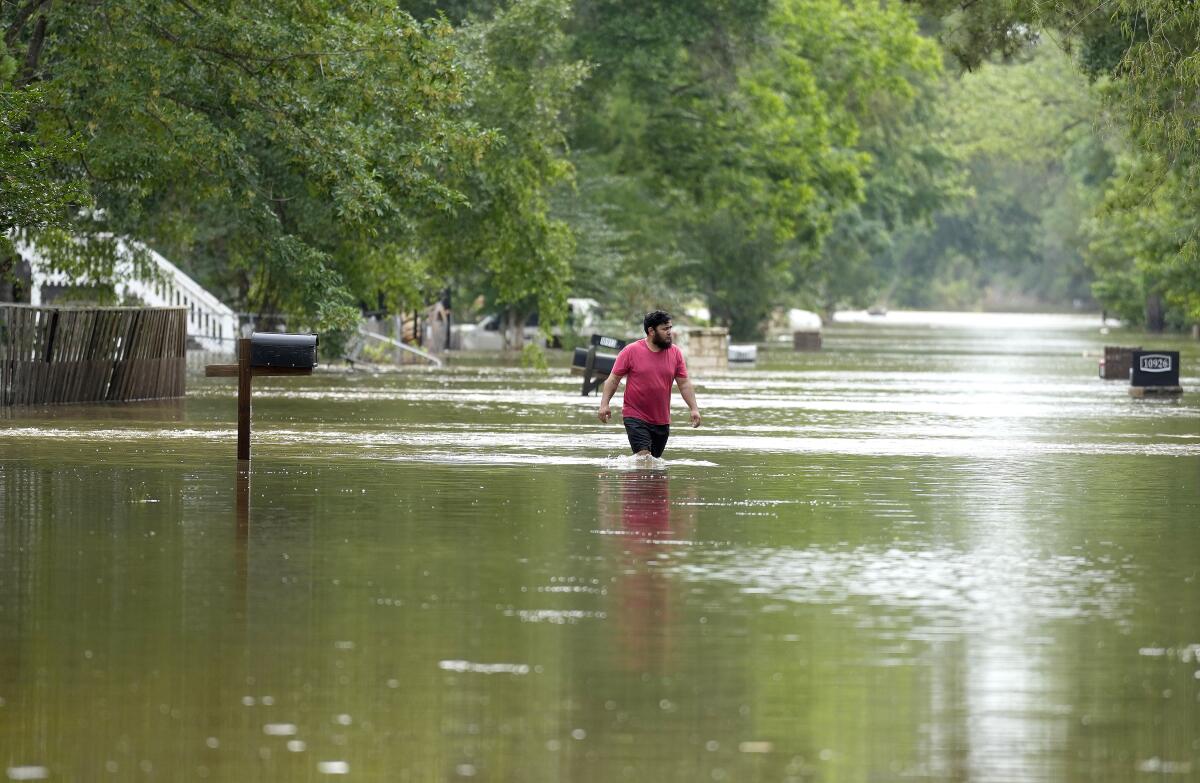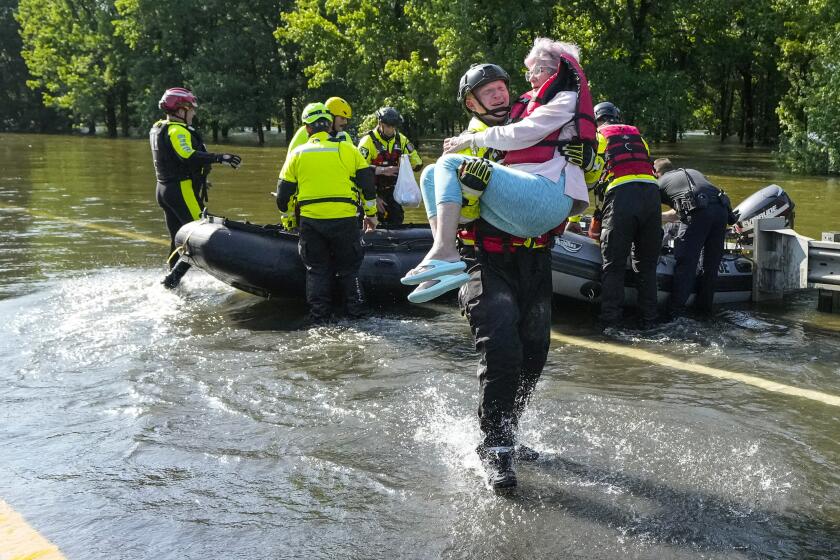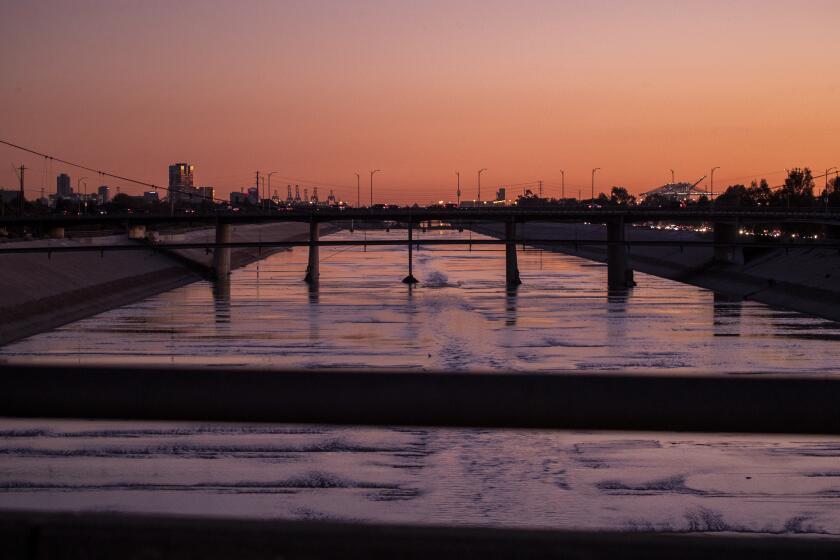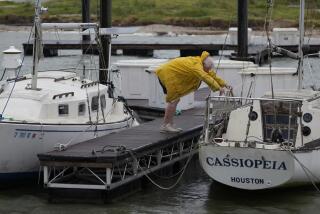As storms move across Texas, a child swept away by floodwaters dies

HOUSTON — Storms on Sunday brought more rain to the saturated Houston area, where hundreds of people have been rescued from flooded homes and roads, while in the Fort Worth area, a child died after being swept away by floodwaters.
Over the last week, areas near Lake Livingston, northeast of Houston, have gotten more than 23 inches of rain, National Weather Service meteorologist Jimmy Fowler said Sunday afternoon. Meanwhile, he said, areas in northeastern Harris County, which includes Houston, saw anywhere from 6 to 17 inches.
Light to moderate rainfall continued Sunday in the Houston area, he said.
“With the rainfall that fell overnight plus this morning, it just kind of prolonged the river flooding that we were experiencing,” Fowler said.
He said the showers would taper off Sunday evening, and no significant rain is expected for about a week.
Child dies in floodwaters
In Johnson County, south of Fort Worth, a 5-year-old boy died when he was swept away after a vehicle he was in encountered swift-moving water just before 2 a.m. Sunday, an official said.
High waters flooded neighborhoods around Houston following heavy rain. More than 400 people in Texas have been rescued from homes, rooftops and roads.
The child and two adults were trying to get to dry ground when they were swept away, Jamie Moore, the Johnson County Emergency Management director, wrote in a Facebook post.
The two adults were rescued around 5 a.m. and taken to a hospital, while the child was found dead around 7:20 a.m. in the water, Moore said.
Areas from central Texas to Dallas-Fort Worth saw as much as 9 inches of rain overnight, said National Weather Service meteorologist Matt Stalley. He said the rain washed out roads west of Waco.
Houston-area river levels
The storms have forced numerous high-water rescues in the Houston area, including from the rooftops of flooded homes.
Jeff Lindner, a meteorologist with the Harris County Flood Control District, said Sunday afternoon that “things are improving slowly.”
“We have water going down on our river systems,” said Lindner.
The San Jacinto River crested Saturday, with its east and west forks and main stem below Lake Houston rising from 1 foot to 3 feet overnight, he said.
Sunday’s rain did not seem to be causing additional flooding, Lindner said. He urged people to remain cautious, noting that many areas are still flooded.
Torrential rain is inundating southeastern Texas, forcing schools to cancel classes and closing numerous highways around Houston.
“We really need everybody to give it just another day before we feel comfortable that conditions are safe,” Lindner said.
Greg Moss, 68, was staying put in his recreational vehicle Sunday after leaving his home in the community of Channelview in eastern Harris County, near the San Jacinto River. On Saturday, he packed up belongings and left before the road to his home flooded.
“I would be stuck for four days,” Moss said. “So now at least I can go get something to eat.”
Moss moved his belongings and vehicle to a neighbor’s home, where he planned to stay until the waters recede. He said Sunday that the waters had gone down by a couple of feet, and he wasn’t worried his home would flood, because it’s located on high ground.
“It’ll be OK to go in there in the morning,” he said.
Houston is prone to flooding
Houston is one of the most flood-prone metro areas in the country. The city of more than 2 million has long experience dealing with devastating weather.
Capturing rainfall is only one part of the L.A. River’s job. It is also a flood control channel that is critical to protecting lives and properties when stormwaters surge.
Hurricane Harvey in 2017 dumped historic rainfall that flooded thousands of homes and resulted in more than 60,000 rescues by government personnel across Harris County.
The greater Houston area covers about 10,000 square miles, a footprint slightly bigger than New Jersey. It is crisscrossed by about 1,700 miles of channels, creeks and bayous draining into the Gulf of Mexico, about 50 miles southeast of downtown.
The system of bayous and reservoirs was built to drain heavy rains, but the engineering designed nearly 100 years ago has struggled to keep up with the city’s growth and with increasingly powerful storms.
Stengle and Oyekanmi write for the Associated Press. Stengle reported from Dallas. AP reporter Juan A. Lozano contributed to this report.
More to Read
Sign up for Essential California
The most important California stories and recommendations in your inbox every morning.
You may occasionally receive promotional content from the Los Angeles Times.













